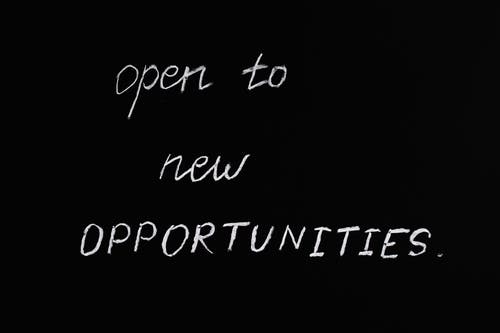
Feb 9, 2021
I want to lead an intentional life. I want to decide what I want to do and then do it. It doesn’t always happen. Sometimes, I am just too ambitious and expect to do way more than is reasonable. Other times I get distracted.
Being a “learner” usually works out well for me, but I can get in my own way. My interests and curiosity are frequently piqued. I find that there are two categories of information out there, what my teacher Danny Iny describes as “just in case” and “just in time.”
“Just in case” learning is a mix of general knowledge and entertainment. I do it through newspapers, magazines, and particularly emails. Many emails I receive project an urgency to act right now to take advantage of an offer. I read the material, in part, because who knows when I might need it in the future.
Many times, “just in case” learning is fine. It satisfies my curiosity. But there are two downsides to it. Unless I am careful to schedule my time, random learning can be very disruptive when I need or want to be productive. It can have a reactive feeling to it. Second, I gradually forget this interesting information unless I have an amazing storage and retrieval system for it.
The other type of learning, “just in time,” is quite different. It means going out and getting information that I need when I need it. It is proactive because I initiate that action. This learning type can be short-term, like looking something up on Google, or part of a long-term project, like going to college with a specific career focus.
In his 1989 book The 7 Habits of Highly Effective People Stephen Covey talks about evaluating tasks by their urgency and importance. The biggest mistake people make is to choose urgent but unimportant tasks to work on, instead of the nonurgent but important ones.
Like most people I know, I receive a growing number of emails every day. I find myself spending more and more time each day pursuing information that I never knew I needed – and probably don’t.
I wake up in the morning eager to pursue and complete the tasks that I’ve carefully chosen for myself. But just let me check my email first to see if anything important needs my attention. I often find something that catches my attention, and down a rabbit hole I go.

Feb 2, 2021
If you’ve decided to work on a really, really important goal, how do you respond to it?
Consider the story of Winston Lord, the Ambassador to China and speech writer for Henry Kissinger and Richard Nixon. Kissinger asked him to write an important speech about China, Viet Nam, and Russia. Lord wrote a draft and submitted it to Kissinger.
The next morning Kissinger responded with a note on the speech that read, “Is this the best you can do?” Lord responded that maybe he could improve it and agreed to write another version. He did, only to get the same response, “Is this the best you can do?” This went on for eight versions of the speech – revision, then rejection.
When Lord received the same reaction on his ninth version, he flew into a rage. Yes, it was his best version. He couldn’t change even a single word to make it better. Kissinger looked at him and replied, nonchalantly, “Well okay, then, I guess I’ll read it.”
Kissinger knew that the stakes were high, and he expected the very best from his co-workers. He might have been more supportive, but he did get the high-quality work he needed.
When you have a meeting or an assignment that is very important to you or someone else, how much preparation do you invest in it?

Jan 19, 2021
For months I’d been working on an idea to use my skills and background during my retirement years. I knew that I wanted to use group coaching to help clients on their own retirement journeys. But I couldn’t quite figure out how I was going to do that. The pandemic was a serious complication.
One day in May I was trolling the internet. I saw an ad that changed everything for me. At least that’s how I see it now.
The ad was from a company that helps people develop on-line courses. I was intrigued enough to attend two free talks on the subject. I liked the content and the speaker. The speaker and founder of the company, Danny, had insights that I had not seen or heard anywhere else. He was bright and somewhat unconventional, and he spoke exceptionally clearly. I was inspired.
I was also surprised. I had taught many courses in the past, some even at the university level. But this approach was new for me. I began to understand that I could use a group coaching approach in a course.
Danny offered a follow-up paid course that described not just the steps to do but also exactly how to do them. I was excited and signed up. This was a good decision. I love to learn new things and then apply them. This was a great opportunity to do just that.
I’ve been constantly surprised at how much I hadn’t known about the art and craft of teaching that I learned through this course. I’ve now applied what I’ve learned into my own on-line coaching courses.
What are your plans to learn something new and exciting?

Dec 14, 2020
Will you have enough money for your retirement? Well, it depends on what you want to do in retirement and what that will cost. But there is more to the question than that.
There is a numerical approach to answering this question. When I was a financial planner, I helped people do the calculations. They wanted to know how long their money would last, based on their savings, investments, Social Security, and their future spending plans.
How much retirement income will you be able to draw from your investments? The calculations that I did used historic investment returns, taking their past variability into account. The result was a probability – the chances that there will be enough to last a lifetime.
When the calculation is all done, you still have to take your tolerance for risk into account. What if there were a 95% chance of your money lasting? That would mean a 5% chance that it wouldn’t. For some people 95% sounded great; for others, not so much. And if the chance of having enough were less, say 80 – 90%, what then? Or if it were more, such as 99%?
The numbers in a calculation about the future go only so far. You have to eat every day to survive, even during a pandemic when the possibility or reality of having less income can be quite real. Having a cash reserve available can be extremely helpful, pandemic or not, but that is based on your past behavior of putting “extra” money aside. You can only make decisions about what you do now for the future.
Having gratitude, faith, and hope helps to manage anxiety. The reality is that whether you are optimistic or pessimistic, life will go its own way. There will always be change and surprises to accommodate to – some negative, some positive.
A life driven by pessimism and fear is not much fun. I prefer to be an optimist. Having a positive attitude lets me participate in and enjoy life more fully along the way, however it all turns out.
What is your attitude about having enough for the future?

Dec 3, 2019
Have you ever asked a newly retired person what they are doing with all their free time in retirement? A common proud answer is that they are very busy, in fact so busy that they do not know how they ever had time to work before.
If you ask for more details, they may describe their days filled with leisure such as visiting friends and family, cultural events, and travel. They may help their children take care of their grandchildren. They may participate in or observe sports.
Leisure used to mean relaxing. Now it means filling your time with activities.
Early in retirement there can be a frantic component to all of this – rushing to different activities before it is too late, because ill health could prevent you from doing what you want to do later on. Even if you are exhausted, there is always television to fill your time.
Not having enough to do in retirement can be a problem for some people. But so too can being too busy – having too much of a good thing.
Too busy may mean that you are over-committed and over-stressed. Here are some of the symptoms:
- there is never enough time to get through your daily tasks, much less for having fun
- you are always behind schedule
- you dread getting up in the morning because you know that you have too much to do
- you are exhausted all the time, even when you awaken
- you eat meals when phoning or doing other activities – that is the only time you have
- you feel like you’re always racing – even though you are retired
- friends and family have given up on you because they know you have no time for them
The antidote is carving out some time for actions that may relieve your stress and improve your mind and health at the same time. These include moderate exercise; meditation and spiritual exercise including prayer; journaling; helping other people; reading a good book; and listening to great music.
Bakeries can have delicious pastries, but eating too many will make you sick. Being busy can be great. But too much is not fun and not healthy.

Nov 19, 2019
There is a tool called Unique Ability which is used to improve the productivity of individuals and work teams. It can be just as powerful a tool to increase your enjoyment and fulfillment by expressing your true self in retirement.
What it is
Dan Sullivan, the founder of the business coaching program Strategic Coach, developed the concept of Unique Ability. As defined in the book Unique Ability, 2003, by his colleagues Nomura and Waller:
“Unique Ability is the essence of what you love to do and do best. There are four characteristics of Unique Ability: It’s a superior ability that other people notice and value; your are passionate about using it and want to use it as much as possible; it’s energizing both for you and others around you; and there’s a sense of never-ending improvement – you keep getting better and better and never run out of possibilities for growth.”
Everyone has a Unique Ability. When you use it, time flies by because you are absorbed in having fun.
A description of Unique Ability has a particular structure. It contains a talent you have (what you do) and a passion (why you do it.) Here are two examples of Unique Ability statements from real people that are mentioned in the book above:
- My Unique Ability is empathizing with people’s individual experiences and taking action so they feel cared for.
- My Unique Ability is perceiving the essence of a situation and providing practical strategies to align people’s thinking with what’s real.
Here’s the problem. Most people use their Unique Abilities only a small fraction of their time in both personal and work activities. This is a huge lost opportunity. The idea here is to use it more in order to spend your time on the right activities and make more of a contribution.
There are two major challenges in using your Unique Ability more than you do now: figuring out what it is for you and applying it.
Figuring it out
You may not know what your Unique Ability is, and you most probably cannot articulate it well. After all, using your Unique Ability is easy for you to do, and you take it for granted. But even if you do not know, people you interact with know what it is because they have seen it in action. So, you need to ask them.
It is helpful getting input from as wide a mix as possible from people who know you well. You can ask friends, relatives, members of your faith community, colleagues from present or past work, customers and others. Then figure out what their comments have in common.
Applying it
The impact of your Unique Ability will depend on how much you use it. Since your time is fixed at 24 hours each day, using your Unique Ability more will require doing fewer other activities. A systematic approach to decreasing time on other less productive activities involves listing those other activities and your competence in doing them. The activities that you are less competent in doing are excellent candidates for removing from your schedule. This may take some creativity in execution and the support of other people.
Let other people know what you are best at and how you can bring value to them. When you are considering a variety of opportunities, both personal activities and paid and unpaid work, think about which opportunity will give you the best chance of using your Unique Ability. In other words, use your Unique Ability as a filter in your choice of activities.
Retirement
Retirement can be a long period of time, almost as long as your working years. How you spend your time in retirement will be different from what it was before. But you are still the same person with the same Unique Ability.
During retirement you may want to contribute to the world around you through paid or unpaid (volunteer) work. If so, your Unique Ability will let you apply your best talents in the institutions that you most value and appreciate.
You will probably spend some of your retirement time in leisure activities and in interactions with friends and family. In those areas too you will make more of a contribution if you use your Unique Ability.
A larger contribution in these areas will provide you with personal benefits of more confidence, happiness, success, and freedom. Using your time wisely will add quality and meaning to your retirement years.
As you prepare for retirement or are wondering how to make your retirement years more meaningful, consider figuring out your Unique Ability. Now is the time to do it as you prepare for and enter retirement. As your contribution gets larger, you will be more excited in the morning, eager to do what is important for you.






